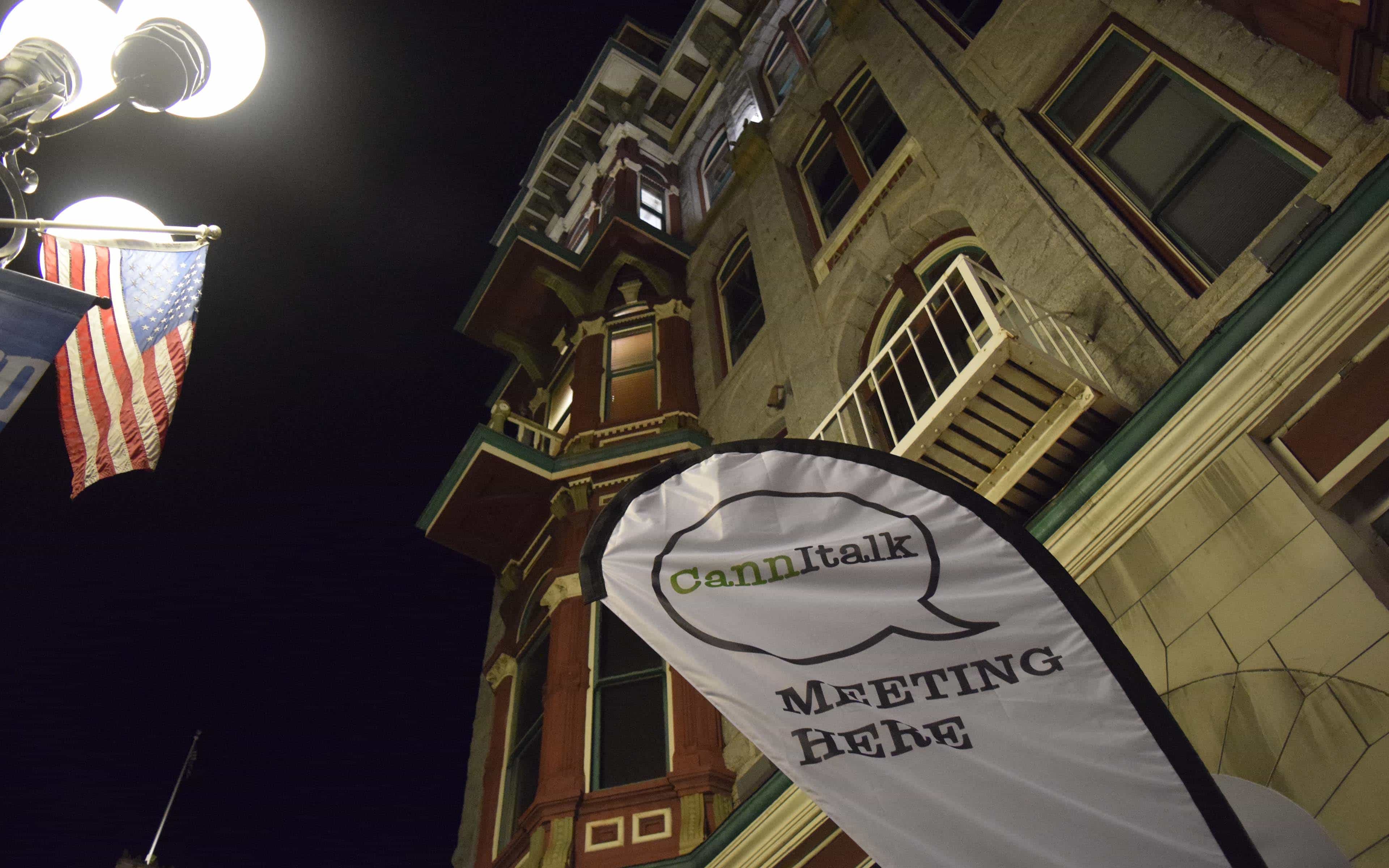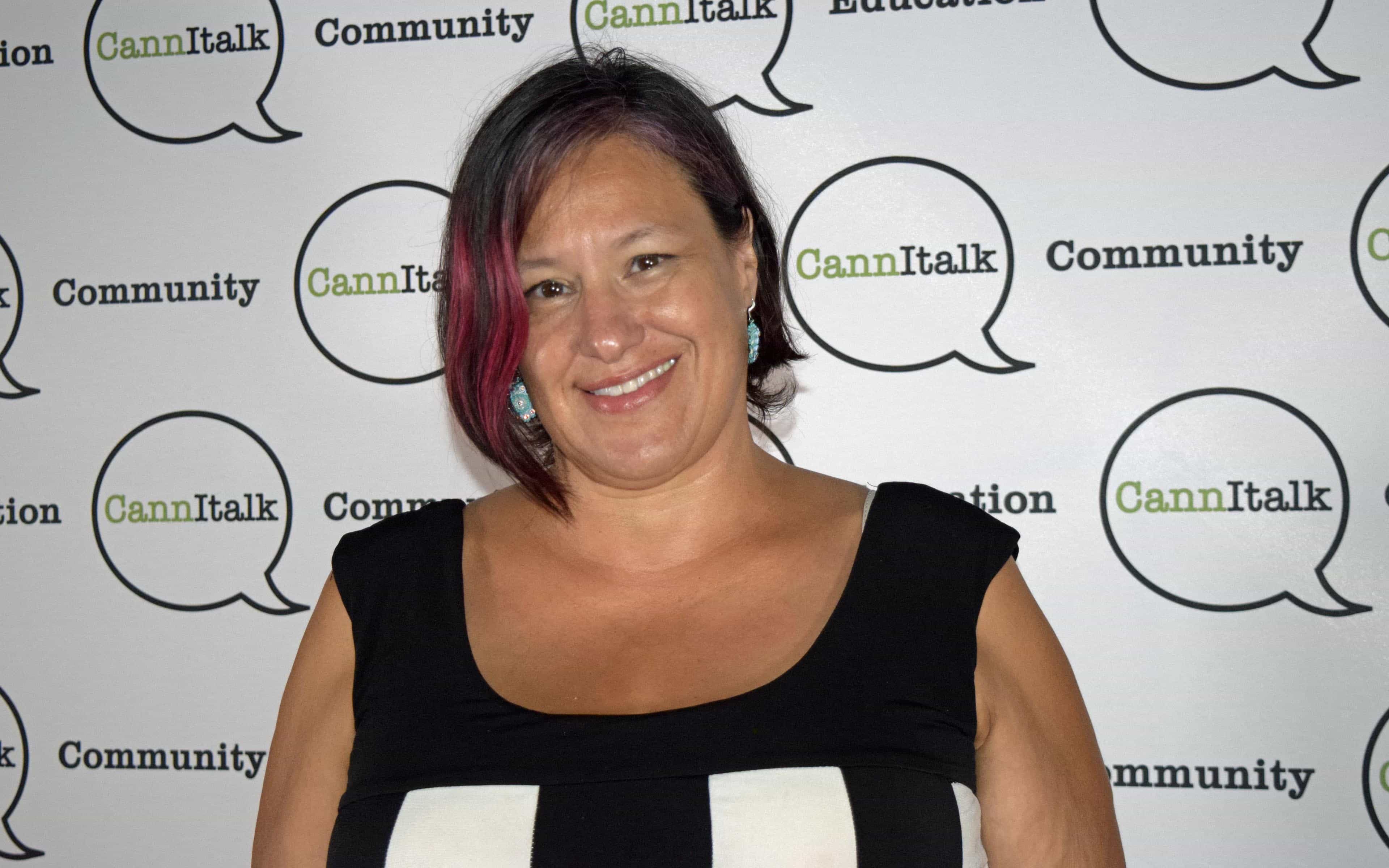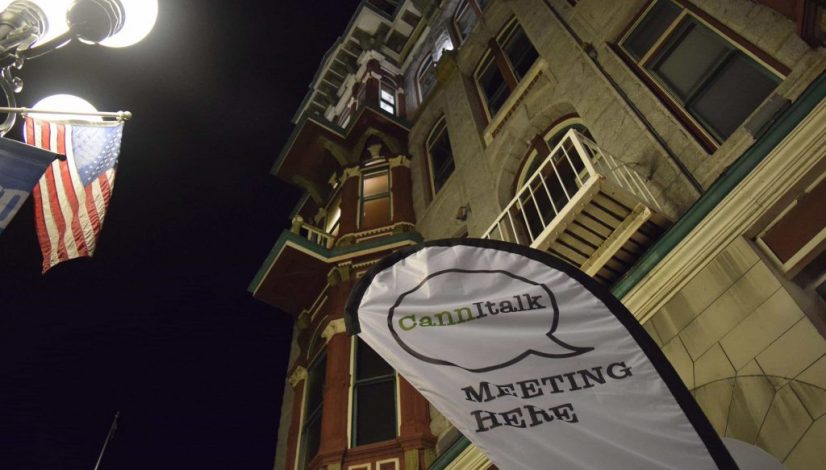San Diego MMJ Patients Share Their Stories
Medical marijuana patients gathered in the historic Gaslamp Quarter in downtown San Diego, California to share how cannabis has had a positive impact on their lives. The event, organized by community education group CannItalk, was held Monday at a cleverly designed bar with a mobile home theme, Trailer Park After Dark.
A videographer was on hand to record participants stories. The videos will be edited and compiled into a presentation for the San Diego City Council. The council will be meeting September 11 to consider proposed regulations that could allow for cannabis cultivation, manufacturing, testing, and distribution business activities within city limits.
Currently, the city only licenses medical marijuana dispensaries, with no legal framework in place for a local supply of products.

Gaslamp Quarter (Photo by A.J. Herrington)
One of the speakers at the event, San Diegan Pattie Harris, 56, has had diabetes since she was a child. Her condition has been complicated by diabetic neuropathy, a disease characterized by nerve damage and severe, sometimes debilitating, pain. Because of the nerve damage, she also suffers from a digestive ailment known as gastroparesis.
Pattie was prescribed the standard course of treatment for her condition—pharmaceuticals. Over the years, she was given 19 different medications to treat pain, insomnia, depression and anxiety. When the dosage of powerful opiates she was taking got so high that side effects left her unable to live her life, she decided enough was enough.
So, she searched for a new form of treatment. What she found was cannabis.
However, the stigma attached to marijuana, even for medicinal use, made Pattie hesitant. Her desire to try cannabis made her feel desperate, immoral even. Sometimes she felt she “should just take prescription drugs and be happy.” But that wasn’t working, and she knew something had to change.
A former teacher, Pattie did everything she could to educate herself. Her research led her to try commercially available infused edibles. She found relief, but decided the products on the market were inconsistent in potency and quality. She began experimenting in the kitchen, and now relies on a homemade cannabis ghee.
She performs her whole-plant extraction in large batches of six quarts at a time, which she has lab tested for potency. Pattie determines her dose based on her pain and function, generally totaling about 20-60 mg of THC per day.

Pattie Harris (Photo by A.J. Herrington)
Since starting cannabis, Pattie has been able to give up nearly all her prescription drugs. The dosage for the two she still takes, insulin and a high blood pressure medication, have been reduced to one-third of what she was taking previously.
Pattie is happy she has found cannabis, but she also harbors some resentment towards public perceptions of marijuana, and the side effects of her treatment over the years.
“I feel angry about misinformation,” Pattie said after speaking to the group. “I feel angry about believing the propaganda about marijuana. And I feel pissed at pharma for doing this to me.”
The organizers of CannItalk encourage all who support safe access to medical marijuana to attend the city council meeting on September 11. The hearing is scheduled for 2 p.m. in City Hall. Activists will be meeting beforehand, outdoors at the civic concourse, to demonstrate and organize for public comment at the meeting.
You can keep up with all of HIGH TIMES’ marijuana news right here.


